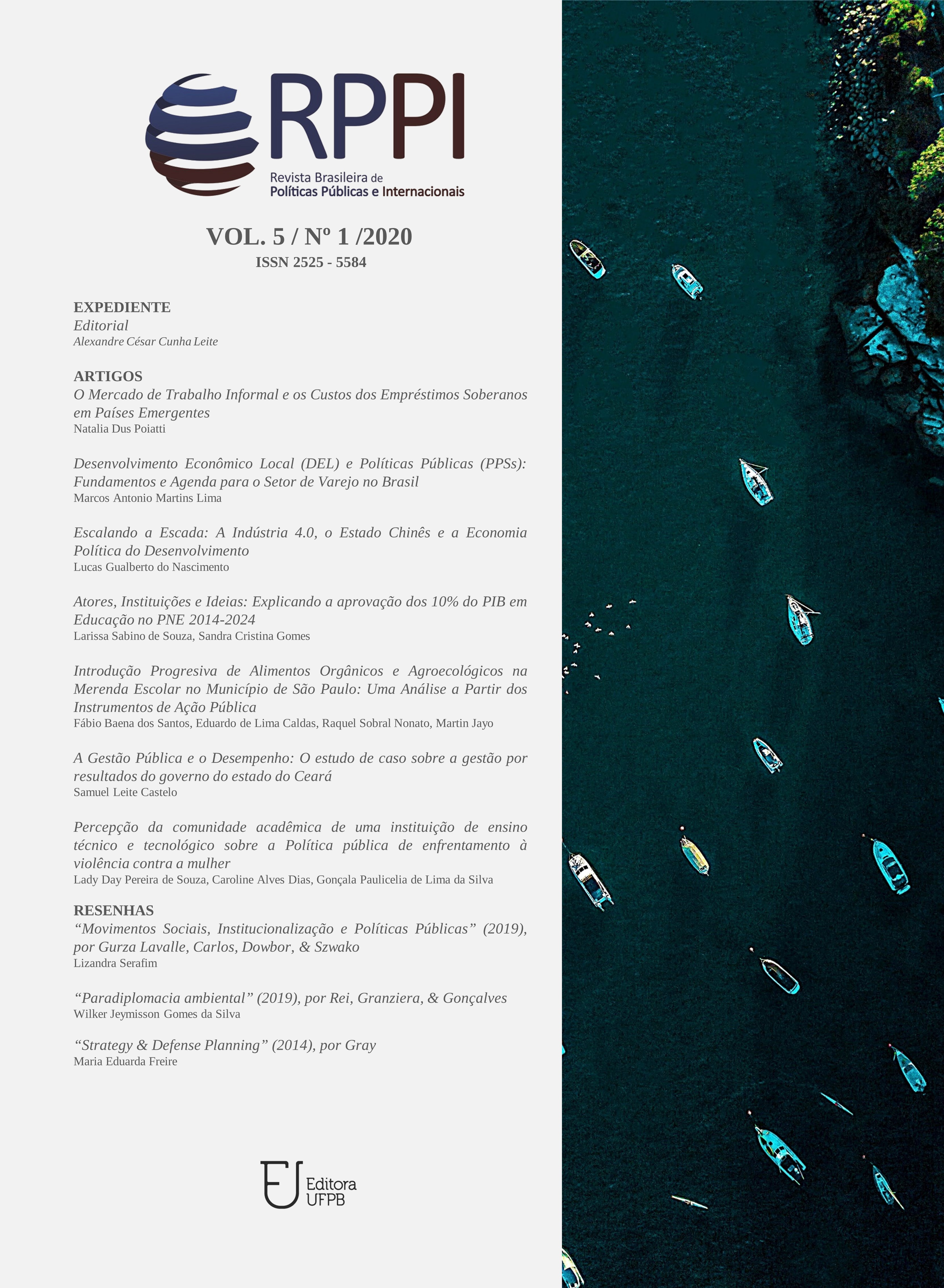Climbing the Ladder
Technological Innovation, the Chinese State, and the Political Economy of Development
DOI:
https://doi.org/10.22478/ufpb.2525-5584.2020v5n1.50626Keywords:
Technological Inocation, Political Economy, China, DevelopmentAbstract
Since the end of the 1970s, the People's Republic of China (PRC) has stood out in the international conjuncture with impressive growth rates, in many years with up to two digits. In a development strategy coordinated by the Chinese State, foreign investment associated with national companies produced, in just over three decades, the largest GDP worldwide by purchase power parity, in 2014. Among theoretical perspectives of Arrighi on the dynamics of the Chinese rise; Mazzucato on the role of the State in technological investment; and Chang on State regulation and intervention in the promotion of development, the thesis that the Chinese State has a crucial role as a promoter of economic and technological development, and leader of the PRC in the advent of the Fourth Industrial Revolution - the so-called Industry 4.0 – is defended. In a favorable conjuncture in terms of systemic accumulation, the PRC is projected as a major power in the international system, with economic and technological capacity in disputing hegemony as a result of its successful strategy of international insertion and development.
Downloads
Downloads
Published
Issue
Section
License
Autores que publicam nesta revista concordam com os seguintes termos:- Autores mantém os direitos autorais e concedem à revista o direito de primeira publicação, com o trabalho simultaneamente licenciado sob a Licença Creative Commons Attribution que permite o compartilhamento do trabalho com reconhecimento da autoria e publicação inicial nesta revista.
- Autores têm autorização para assumir contratos adicionais separadamente, para distribuição não-exclusiva da versão do trabalho publicada nesta revista (ex.: publicar em repositório institucional ou como capítulo de livro), com reconhecimento de autoria e publicação inicial nesta revista.
- Autores têm permissão e são estimulados a publicar e distribuir seu trabalho online (ex.: em repositórios institucionais ou na sua página pessoal) a qualquer ponto antes ou durante o processo editorial, já que isso pode gerar alterações produtivas, bem como aumentar o impacto e a citação do trabalho publicado (Veja O Efeito do Acesso Livre).




_.jpg)






.png)


.jpg)
_.png)
